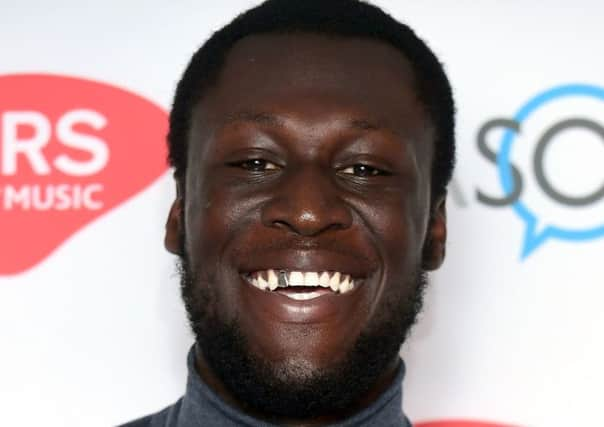Put Stormzy on the curriculum to revitalise music education - Matt Griffiths


So, as chief executive of national charity Youth Music, I find it devastating when young people tell us that music in schools is boring, irrelevant or unavailable. That’s why I’ve written an open letter to the Education Secretary Nick Gibb calling for an urgent transformation of music in schools to ensure young people can access an engaging curriculum that is fit for the 21st Century.
That can only be done with teachers employed in schools, and music being given enough hours in the curriculum.
Advertisement
Hide AdAdvertisement
Hide AdYouth Music is a national charity investing National Lottery funding in music projects across England. For 20 years, we’ve seen the huge impact that music can have on young people’s social and personal development. We’re not just talking about improved feelings of wellbeing.
We’re talking about improvements in mental health and social isolation. About routes away from gangs and knife crime and into employment.
The national curriculum for music makes specific reference to the ‘great composers’. What image does that conjure up? Probably a white European man with a funny hairstyle who lived in the 1700s.
This has to change, to be more relevant to young people and more reflective of the diversity of the country today. It’s about representation.
Advertisement
Hide AdAdvertisement
Hide AdYouth Music made the national headlines earlier this week as we suggested that the curriculum needed reimagining to include more hip-hop, rap, grime and electronic music. This is not about replacing Mozart for Stormzy. But it is about including more Stormzy, Ed Sheeran, Little Mix, Beyonce, or a host of other popular musicians that young people are listening to today.
Engaging young people with music that speaks to them opens doors to broader, more diverse musical learning that can have benefits for attendance, attainment and wellbeing. This is one finding of Exchanging Notes, a seminal study research we’ve just launched which explored the benefits of inspiring, sustained access to music in school – particularly for young people at risk of exclusion.
Working with almost 1,000 young people in total, some over a four-year period. A key success factor in the work was offering a curriculum that promotes choice and creativity. And this means using young people’s musical passions as a starting point.
At Youth Music we know how rap, hip hop and grime has a special ability to engage young people, especially through its relevance, humour and astute social commentary. Unlike many other forms of music-making, rapping is highly accessible – grade 8 and years of private lessons are not a pre-requisite for success. All you need is a phone and internet connection and you can self-release on YouTube. And contrary to popular belief, it’s not all guns, swearing and misogyny.
Advertisement
Hide AdAdvertisement
Hide AdTake the MOBO award-winning Lady Leshurr: “People associate grime with violence and aggression, and I wanted to be the person to change that.” Her Queen’s Speech Ep. 4 viral video (currently knocking on for 57 million views) features a chorus about brushing your teeth!
Dave’s recent single Black speaks about his experience of being young, Black and British today. On the evocative Lesley, he raps about domestic violence – a topic also tackled by Strelz O (a rapper on a Youth Music-funded project at Bollo Brook Youth Centre) on a track he composed to raise awareness of the issue.
Time and time again at Youth Music we’re told about the power of song-writing to express and process emotions. And how the process of being creative lets people experiment, take risks, and get things wrong. All essential building blocks for resilience – the ability to bounce back from life’s setbacks. But the constant pressure of exams and attainment in schools leaves little time for creative exploration. Music departments are underfunded and isolated, and while many teachers are doing a fantastic job in difficult circumstances, the environments they work in need to change.
And this needs to come from the top.
The Government has a moral responsibility to support young people from all walks of life, and that means ending the obsession with musical attainment.
Advertisement
Hide AdAdvertisement
Hide AdWe’re calling on Government, schools, and the music industry to work together and bring school music into the 21st Century.
If we open up our classrooms to more diverse music, more diverse partnerships, and give more choice to young people, then we believe it’s a win-win – for schools, for young people, and the music industries.
Matt Griffiths is chief executive officer for national charity Youth Music